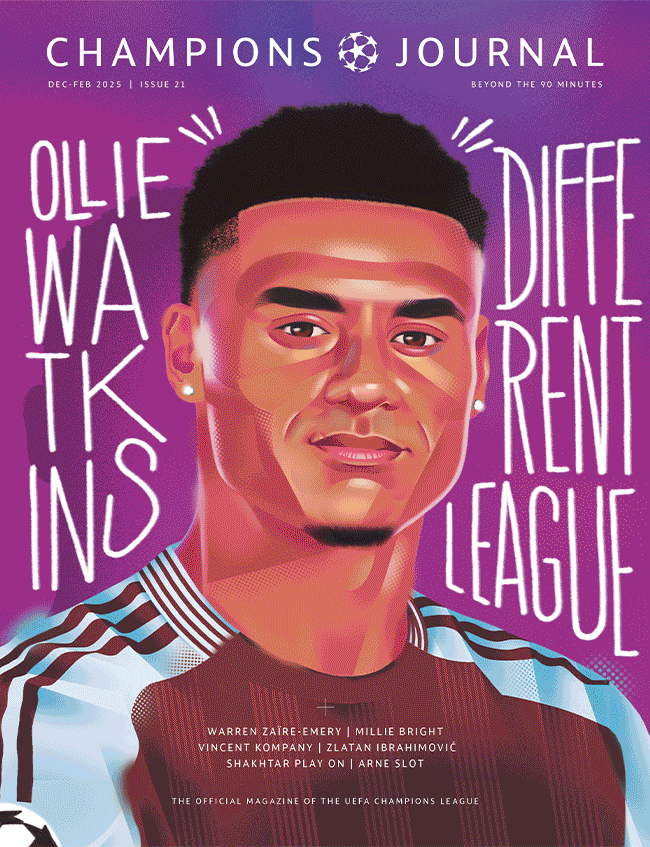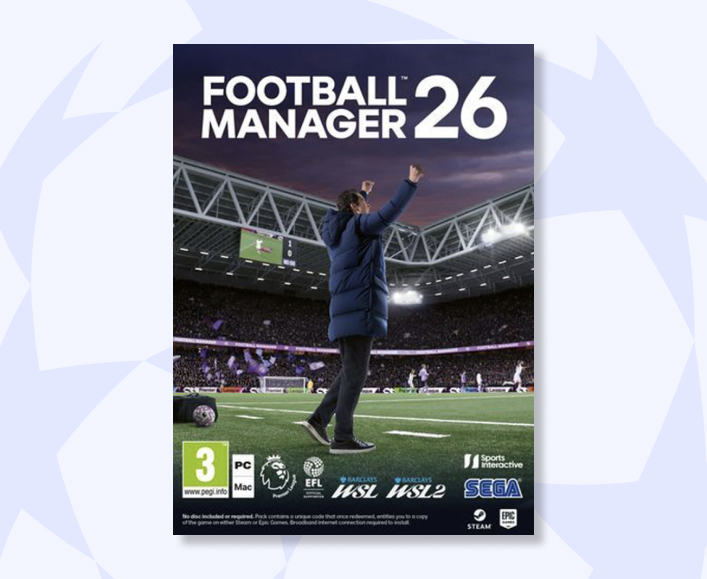If you’re a friend of Luis Enrique Martínez, you’ll regularly receive mobile phone pictures of deer, wild boar, wide-winged birds of prey, foxes or forests draped in snow. If you’re his really good friend, you’ll occasionally be asked to go through hell with him.
The former stems from his need, his obsession, to use any spare time to pedal several hundred kilometres per week – sometimes by road, more often on mountain tracks or through dense wooded areas where the terrain is rough but the natural world is at its finest. The latter comes from the Paris Saint-Germain coach’s penchant for tilting at tortuous physical challenges, recruiting fellow buccaneers and then ‘achieving the unachievable’.
Few of us properly understand the regimen of an elite footballer. It’s a gilded, lucrative, often highly enjoyable prison. But something of a jail nonetheless. It’s hugely well rewarded, of course, but your time is rarely your own. Your family can often come off second best. Your body and your health are, in many ways, co-owned with the club which pays your salary. And although playing for a professional club is like working in a benign dictatorship, the fact remains that it’s not a democracy.
What you eat, your hours at work, days off, your weight, what hobbies you have, how you de-stress, what you say or do in public – none of these are wholly in the hands of the individual player. In some instances, the rules which dictate your lifestyle are ironclad.
Once a career is finished, the bonds are broken. The prohibited is no longer proscribed – Thomas Gravesen went gambling in Las Vegas, Mathieu Flamini ventured into biochemical engineering (hugely successfully), Gareth Bale golfed (even more), Victor Valdés followed his passion for windsurfing, Romário and George Weah became politicians, while Gerard Piqué bought football clubs and the Davis Cup.
Luis Enrique, by comparison, decided that he wanted to test his body, mind and character through extreme sport, up to and beyond what most people would consider the outer limits of human endurance. A clutch of marathons, triathlons, Ironman contests followed – and then the ultimate challenges.
In 2008, he and ex-basketball star Toñín Llorente took on the Marathon des Sables. It’s a jaw-dropping commitment. Six straight days of running across the Sahara Desert to complete, or attempt to complete, a marathon per day. Almost inconceivable pain, mental torture and mile after endless mile of sand in both extremes of temperature, all of this while carrying your food on your back.
Then, a couple of months before taking over in Paris, Luis Enrique assumed Lion King status. The Cape Epic is an eight-day race covering around 700km with some 17,000m of climbing. It’s the Tour de France of mountain biking, and finishing just once is a huge achievement. Finishing three times makes you a legend, earning you entry to the exclusive Amabubesi club.
A Zulu word, Amabubesi means ‘pride of lions’, and with Luis Enrique being the linchpin various teams have functioned around, that makes him the leader of the pride. And what that means for Paris Saint-Germain is that the French side are now being sculpted and reset by a man whose communicative talents, coaching ability and commitment to front-foot, daring, attacking football are matched by his burning desire to test himself to, and beyond, breaking point.
He agreed to meet at the club’s new training ground in Poissy, about 40 minutes west of central Paris, and explain a little bit about his side passion. About his apparent need to suffer.
“I do like to undertake extreme tests and I don’t know exactly why,” he says. “I simply like it. I always felt very lucky to be a professional footballer and I really enjoyed my career. But I remember in the last few years telling my team-mates that as soon as I stopped playing football, I’d start running marathons, long-distance challenges, bike races… I wanted all the things professional football doesn’t allow you to do when you’re playing – skiing, for example. I only learned to ski when I was 38.
Luis Enrique with Juan Carlos Unzué (top right); Luis Enrique and his team-mates after completing the 2023 Cape Epic (right)
“I’ve always had that competitive aspect – it’s what I enjoy the most, regardless of the sport. We all want experiences to give us something positive. That’s the spark you’re looking for. But when you retro-analyse things, you realise that the worst times are when you learn the most. Negative situations leave the deepest memories, not only in sport but also in life.”
That’s a phrase to return to. We must if the aim is to understand this energetic, pugnacious and hugely talented man a little better. But, for the moment, more about his leonine status. He happily warms to his theme: “There’s a famous race in South Africa, which we mountain bikers know, called the Cape Epic. The pain of competing is quite sharp. An Amabubesi is someone who manages to complete this race in three different years, consecutive or not. They join the Amabubesi club, and I’m one of the relatively few people in it.
“The race takes place each year in March/April, and you’re on a mountain bike for one week, or eight days. Each stage is about 80 to 110km. There are some shorter 20 to 30km stretches. The conditions are what they are: if it rains, it rains. If it’s very hot, it’s very hot. These are endurance races and you get to share these experiences with professionals, even if only on the campus. It’s a test I really appreciate.”
In the past, one of the many friends who volunteered to go to hell and back was former Barcelona goalkeeper Juan Carlos Unzué, Luis Enrique’s assistant coach while winning the treble with the Blaugrana in 2014/15. This year, Luis Enrique’s team wore Unzué’s name on the back of their shirts. The 56-year-old now suffers from amyotrophic lateral sclerosis (ALS), formerly known as Lou Gehrig’s disease. His mobility has been devastated and, wheelchair bound, his challenges have changed dramatically, from the ‘who dares wins’ variety to the involuntary and unavoidable kind.
“Carrying Juan Carlos’ name on our backs was a way of bringing awareness to his ALS. He’s an example for all of us – always a positive attitude, no matter what life throws at him. Juan Carlos is a great motivator and inspires all of us in my group of friends. We used the number he wore when he was a goalkeeper, the number one, and ‘Unzué’. Our way of dedicating our effort to him.”
But if rising to Amabubesi status sounds difficult (catch him in a rare moment of self-assessment and Luis Enrique will admit that this year’s Cape Epic was his toughest yet… and that age might just be a factor), it’s nothing compared to what he went through while traversing the Sahara on foot.
“The hardest challenge I’ve done, where the competition caused me the most pain, was the Marathon des Sables. It’s a mighty challenge and extremely tough because you have to rely on yourself for one week and you’re running a daily marathon through the desert. You can do a double marathon one day and then the next day only 20km; self-reliance implies you bring and carry your own food, your own bed. These circumstances are very different from the day-to-day life of a normal person. They take you out of your comfort zone and force you to experience new things in life.”
He ran with sand in his socks and shoes, bleeding feet and blisters causing him misery. His team-mate, equally determined to finish, was reduced to walking most of the final two days. Luis Enrique drove himself on by repeating over and over in his head that if he didn’t finish then, by some demonic vicarious process, he’d be doing damage to his family.
A small madness, but it eventually got him to, and across, the tape. “Being competitive is a hallmark of everyone in any professional sport. But it shouldn’t be a blind obsession. In my case, it’s one of the reasons I keep on embracing personal challenges.”
I don’t think it’s inappropriate, here, to remind readers that, in his private life, Luis Enrique suffered one of the most painful experiences imaginable. When Barcelona won the 2015 Champions League final in Berlin, he and his youngest child, Xana, gambolled around the pitch post-match, dancing in a joyful father-daughter celebration that dad’s work was done for the season, that it had been historically successful and summer was coming.
Four years later, Xana’s bone-cancer diagnosis turned out to be terminal. Luis and Elena lost their beautiful daughter, Pacho and Sira their lovely sister. Luis Enrique had temporarily stood down from his job as Spain coach, went through a few months of mourning and then, typically, threw himself straight back into work.



























